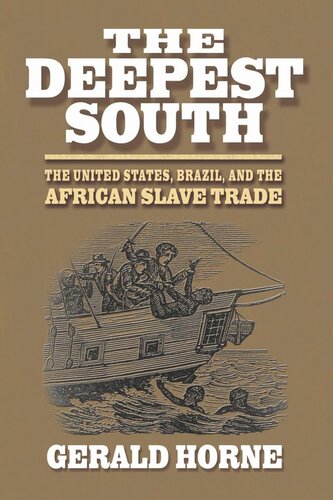

Most ebook files are in PDF format, so you can easily read them using various software such as Foxit Reader or directly on the Google Chrome browser.
Some ebook files are released by publishers in other formats such as .awz, .mobi, .epub, .fb2, etc. You may need to install specific software to read these formats on mobile/PC, such as Calibre.
Please read the tutorial at this link: https://ebookbell.com/faq
We offer FREE conversion to the popular formats you request; however, this may take some time. Therefore, right after payment, please email us, and we will try to provide the service as quickly as possible.
For some exceptional file formats or broken links (if any), please refrain from opening any disputes. Instead, email us first, and we will try to assist within a maximum of 6 hours.
EbookBell Team

5.0
18 reviewsDuring its heyday in the nineteenth century, the African slave trade was fueled by the close relationship of the United States and Brazil. The Deepest South tells the disturbing story of how U.S. nationals - before and after Emancipation -- continued to actively participate in this odious commerce by creating diplomatic, social, and political ties with Brazil, which today has the largest population of African origin outside of Africa itself.
Proslavery Americans began to accelerate their presence in Brazil in the 1830s, creating alliances there—sometimes friendly, often contentious—with Portuguese, Spanish, British, and other foreign slave traders to buy, sell, and transport African slaves, particularly from the eastern shores of that beleaguered continent. Spokesmen of the Slave South drew up ambitious plans to seize the Amazon and develop this region by deporting the enslaved African-Americans there to toil. When the South seceded from the Union, it received significant support from Brazil, which correctly assumed that a Confederate defeat would be a mortal blow to slavery south of the border. After the Civil War, many Confederates, with slaves in tow, sought refuge as well as the survival of their peculiar institution in Brazil.
Based on extensive research from archives on five continents, Gerald Horne breaks startling new ground in the history of slavery, uncovering its global dimensions and the degrees to which its defenders went to maintain it.